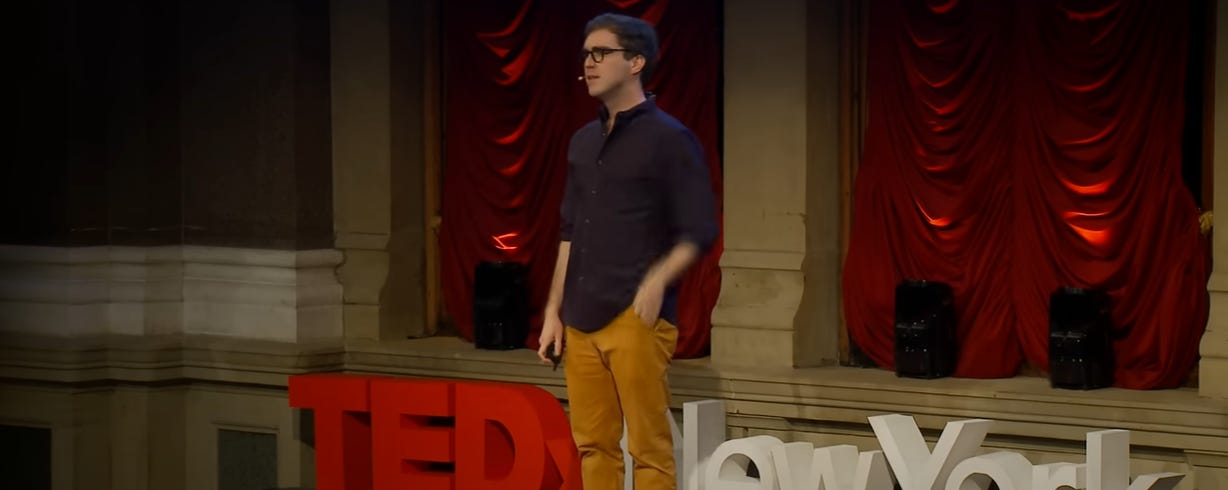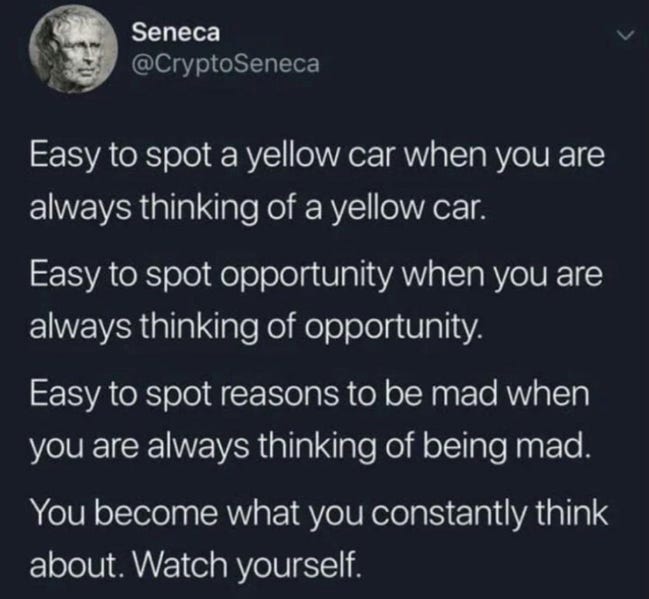#56 | 7.26.24 - How to Have Better Conversations / Feeding the Olympics / A Ted Talk About Nothing / You Become What You Think About
Hello, friends, and welcome to Further Faster Fridays! If this is your first issue, welcome! We ship the best content in personal development and leadership each Friday to help you go further, faster. Glad to have you as part of the community!
Now, on to the content!
How to Have Better Conversations
One thing that my work in CliftonStrengths has taught me is that I’m really not good at small talk. I just don’t enjoy it, at all. However, I want to have good conversations with people and make the other person feel comfortable.
With that in mind, I want to highlight three quick actions to help have a better conversation.
Be curious
As you meet someone new, one of your best tools will be genuine curiosity. Ask questions that will lead you to a fascinating fact or idea that you can follow up on.
Several studies suggest that curious people have better relationships, connect better, and enjoy socializing more. The article also points out that people feel socially closer to individuals who display curiosity.
"Being interested is more important in cultivating a relationship and maintaining a relationship than being interesting; that's what gets the dialogue going. It's the secret juice of relationships."
- Todd Kashdan, George Mason University psychologist, author of Curious
BONUS: A good friend of mine suggested having pre-loaded questions ready if you need them. I love this idea! One of my personal favorites is, “How have you been sleeping?” It's a little on the weirder side, but I've had some surprising conversations because of it!
Listen well
Being curious is key to kick-starting a conversation but beware of swinging too far to one side and dominating the conversation early on. Remember that conversations are give-and-take, and you don’t want the other person to feel like it’s an interrogation. Active listening is crucial. This means fully concentrating on what the other person is saying rather than planning your next response.
A good practice is to summarize their points or ask follow-up questions to show that you are engaged. For example, if someone mentions they are working on a new project, you might say, "That sounds fascinating! What challenges have you faced so far?"
BONUS: One of my favorite follow-up questions (or statements, rather) is, “tell more about that”. Works wonders!
Avoid interrupting
Interrupting can disrupt the flow of conversation and make the other person feel undervalued. Allow them to complete their thoughts before you respond. If you tend to interrupt, try waiting 1-2 seconds after the other person stops talking before you respond.
Improving your conversation skills takes time and practice, but the effort is well worth it. By being curious, listening well, and avoiding interruptions, you can foster more meaningful and enjoyable interactions and avoid the dreaded small talk loop!
Feeding the Olympics
With opening ceremonies kicking off tonight, this is a fascinating read. 3 MILLION bananas. Wow. Great article here about the logistics and everything that goes into feeding everyone at the Olympic games.
A Ted Talk About Nothing
I love me a good Ted Talk, but this one has become one of my favorites. It’s just under 6 minutes, and the speaker, admittedly, has nothing to talk about. Yet he held my attention the entire time.
You Become What You Think About
Words to wrap up
“Some of the best times of your life haven't happened yet”
- The Daily Coach







